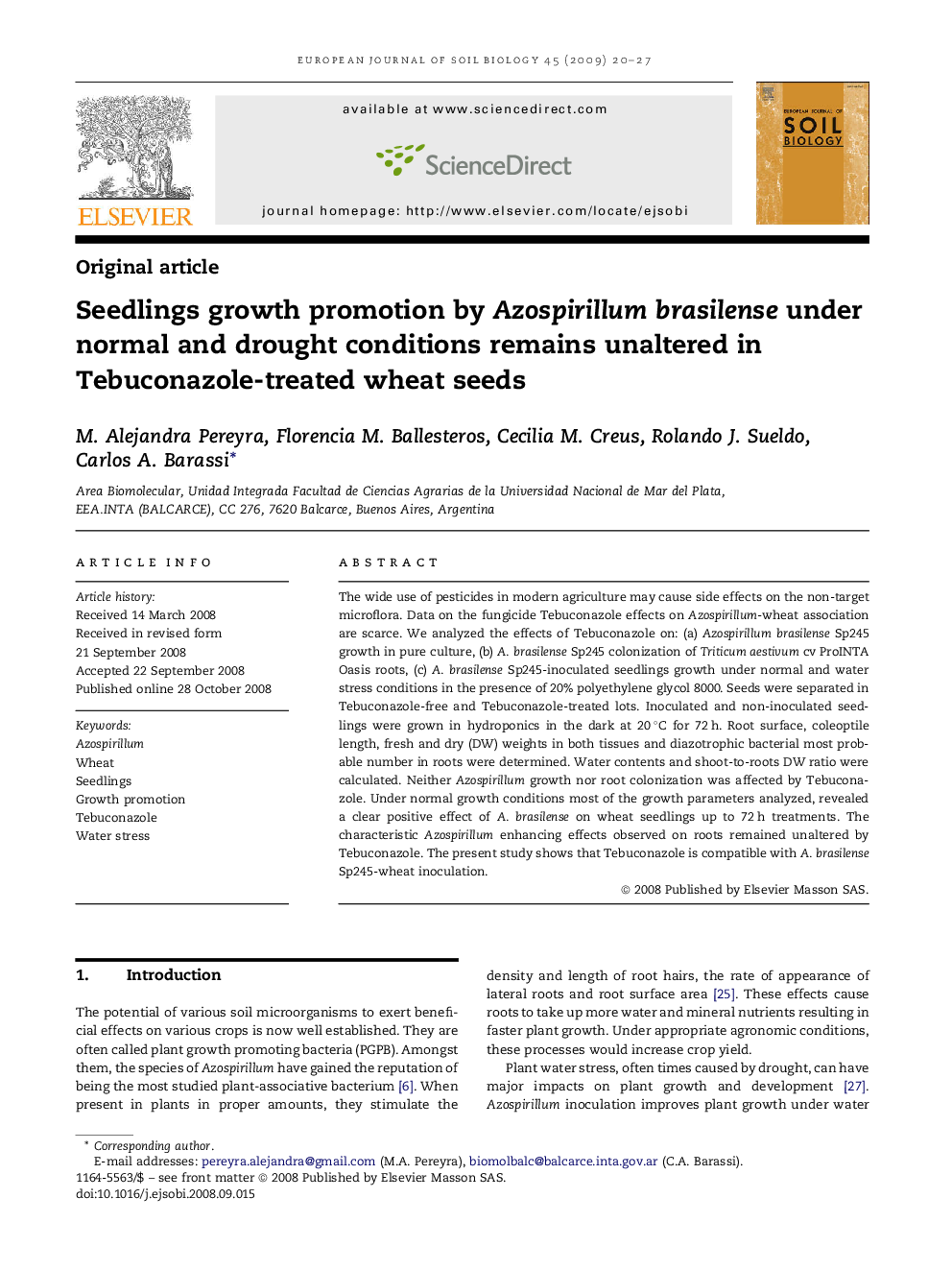| Article ID | Journal | Published Year | Pages | File Type |
|---|---|---|---|---|
| 4392291 | European Journal of Soil Biology | 2009 | 8 Pages |
The wide use of pesticides in modern agriculture may cause side effects on the non-target microflora. Data on the fungicide Tebuconazole effects on Azospirillum-wheat association are scarce. We analyzed the effects of Tebuconazole on: (a) Azospirillum brasilense Sp245 growth in pure culture, (b) A. brasilense Sp245 colonization of Triticum aestivum cv ProINTA Oasis roots, (c) A. brasilense Sp245-inoculated seedlings growth under normal and water stress conditions in the presence of 20% polyethylene glycol 8000. Seeds were separated in Tebuconazole-free and Tebuconazole-treated lots. Inoculated and non-inoculated seedlings were grown in hydroponics in the dark at 20 °C for 72 h. Root surface, coleoptile length, fresh and dry (DW) weights in both tissues and diazotrophic bacterial most probable number in roots were determined. Water contents and shoot-to-roots DW ratio were calculated. Neither Azospirillum growth nor root colonization was affected by Tebuconazole. Under normal growth conditions most of the growth parameters analyzed, revealed a clear positive effect of A. brasilense on wheat seedlings up to 72 h treatments. The characteristic Azospirillum enhancing effects observed on roots remained unaltered by Tebuconazole. The present study shows that Tebuconazole is compatible with A. brasilense Sp245-wheat inoculation.
